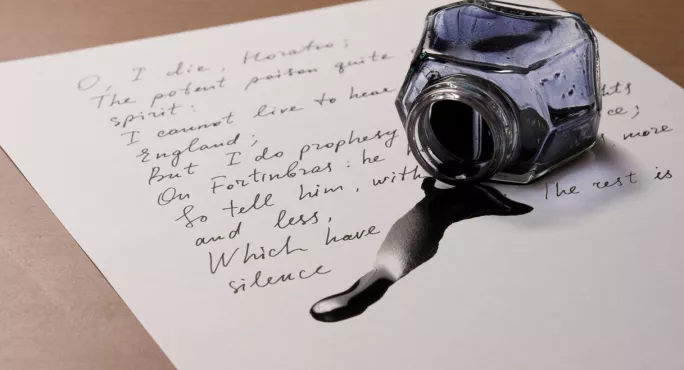The leaves may be starting to turn, the face mask beginning to whiff a bit, and the memories of my shy new September classes starting to fade. But - for me - none of these developments truly defines the onset of autumn.
I only know we are properly into the new season when I hear the first familiar call of the Ucas student: “Please can you read the first draft of my personal statement?”
Similarly, their final, final draft often heralds the beginning of winter.
Most of us still remember the extended pain of having to write one of these ourselves. We recall, in particular, the hours we spent over that seemingly all-important opening sentence.
Penning Ucas personal statements
As the years have passed, the beginning seems to have become even harder for students.
A growing number of opening gambits have been added to the many taboo lists out there. We encourage students full of “love” and “passion” for their chosen subject never to use such words, and to kowtow instead to a (possibly imagined) posse of world-weary, cynical admissions tutors.
As well as being advised to keep all those effusive feelings (however genuine) to themselves, students are now recommended not to start with quotations, quirkiness, jokes or anything that might sound a bit arty-farty or airy-fairy.
“We don’t want passion and poetry - we want proof and performance,” is the message to today’s applicants.
In fact, I am fairly sure that many of the greatest literary figures would be told to restart their applications now. Their approach would seem entirely unsuitable.
Too flowery for his own good
Let’s just consider some of the imagined applicants in my current Year 13 tutor group. One Elizabeth Barrett Browning, for instance, showed me her first draft this week. She has tried to start with this rather embarrassing paean to media studies: “How do I love thee? Let me count the ways.” I have obviously told her to get real and start again.
Similarly, young Will Shakespeare has just emailed me his first effort, which begins with the rather abstruse: “Shall I compare thee to a summer’s day? Thou art more lovely and more temperate.”
He, too, has been told to have a complete reboot. Will needs to focus instead on what he’s read, his work experience, TED talks and the like. Too flowery for his own good, that lad.
Meanwhile, John Keats has kicked off with: “A thing of beauty is a joy for ever.” I can already see those admissions tutors rolling their eyes at that one.
Martin Luther King has opted to go on about having a dream, repeating himself a full eight times there.
Charles D, on the other hand, contradicts himself throughout his entire first paragraph: “It was the best of times, it was the worst of times, it was the age of wisdom, it was the age of foolishness…” and so on. Straight in the bin.
Without making some major changes, none of those brilliant students would have a hope of being taken seriously.
So, while there are some excessively gushing openings to today’s personal statements, I say let’s all stop being so 2020 knowing about all this, and let youthful passion have its voice again.
And, yes, I know: I used the dreaded “passion” word there.
Stephen Petty is head of humanities at Lord Williams’s School in Thame, Oxfordshire




